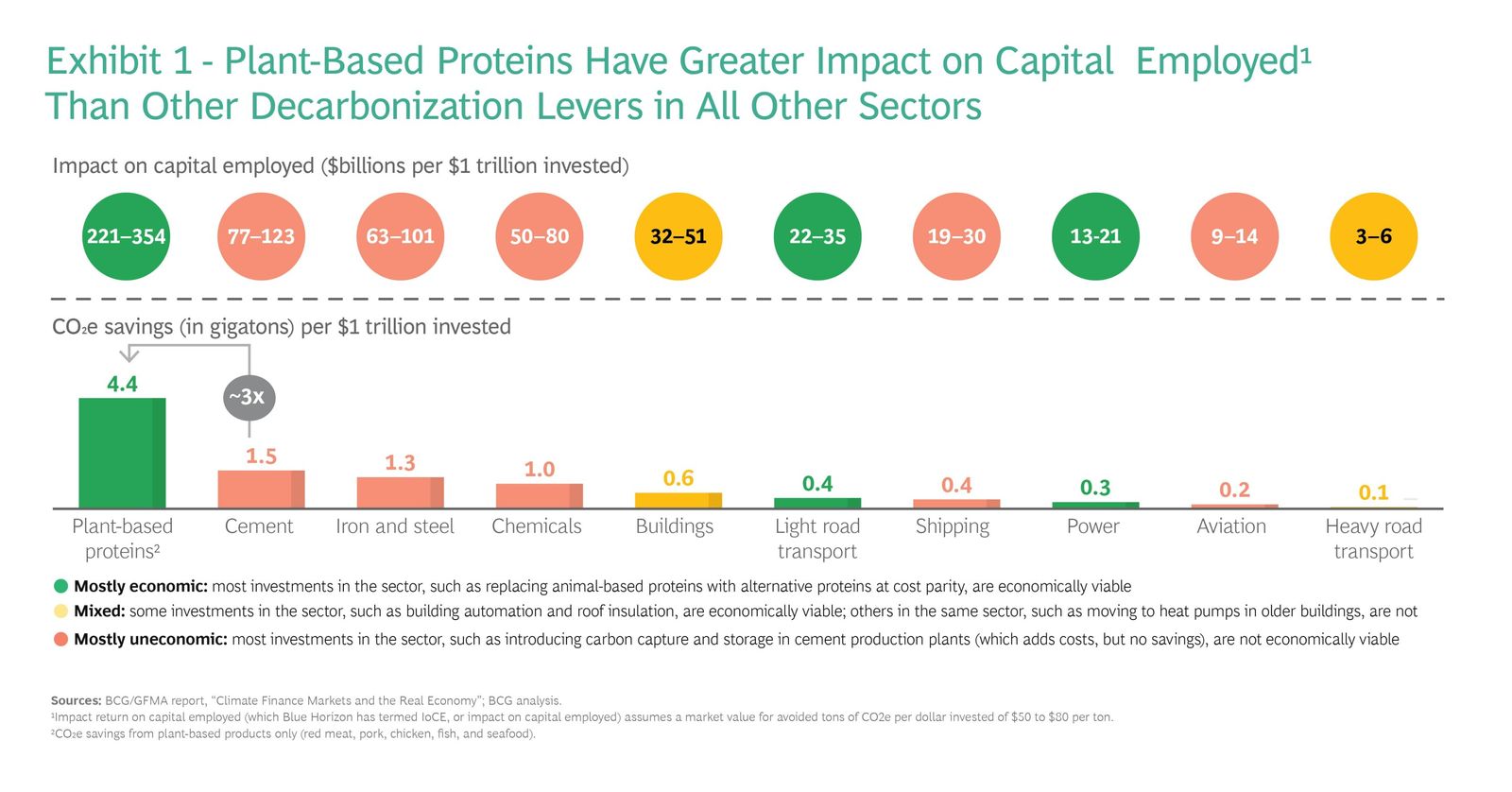
🍔 Alternatives to meat are the best way to reduce carbon dioxide emissions
Choosing an alternative to meat can reduce carbon dioxide emissions much more than stopping flying or producing more environmentally friendly cement.
Share this story!
The analysis firm Boston Consulting Group, BCG, and the investment company Blue Horizon have calculated which industries have the best conditions for reducing carbon dioxide emissions. It turns out that the most cost-effective thing we can do is replace the meat we eat.
Every dollar invested in replacing meat with, for example, plant-based alternatives yields at least three times as much as investing in reducing emissions in something else.
According to the researchers, we would reduce carbon dioxide emissions by 4.4 gigatons for every trillion dollars invested in alternatives to meat. For the same money, we would only reduce emissions from the cement industry by 1.5 gigatons and 0.2 gigatons for aviation industry.

"We were quite surprised by these numbers ourselves so we double and triple checked them. It seems that this really is one of the easiest ways to fight climate change", says Friederike Grosse-Holz, board member of Blue Horizon in a comment to Discover Magazine.
The researchers also asked 3,700 people around the world whether they would be willing to switch to plant-based meat alternatives if it would reduce their climate impact. 31 percent said they were willing to do so. Here, the researchers believe that there is much to be gained by informing more about the benefits of meat alternatives.
Investments are then needed to streamline the production processes so that the alternatives are as cheap or preferably cheaper than meat. It is a process that will take many years, but the potential is enormous, so the researchers have good hope that we will eat much more plant-based meat in the future.
By becoming a premium supporter, you help in the creation and sharing of fact-based optimistic news all over the world.


